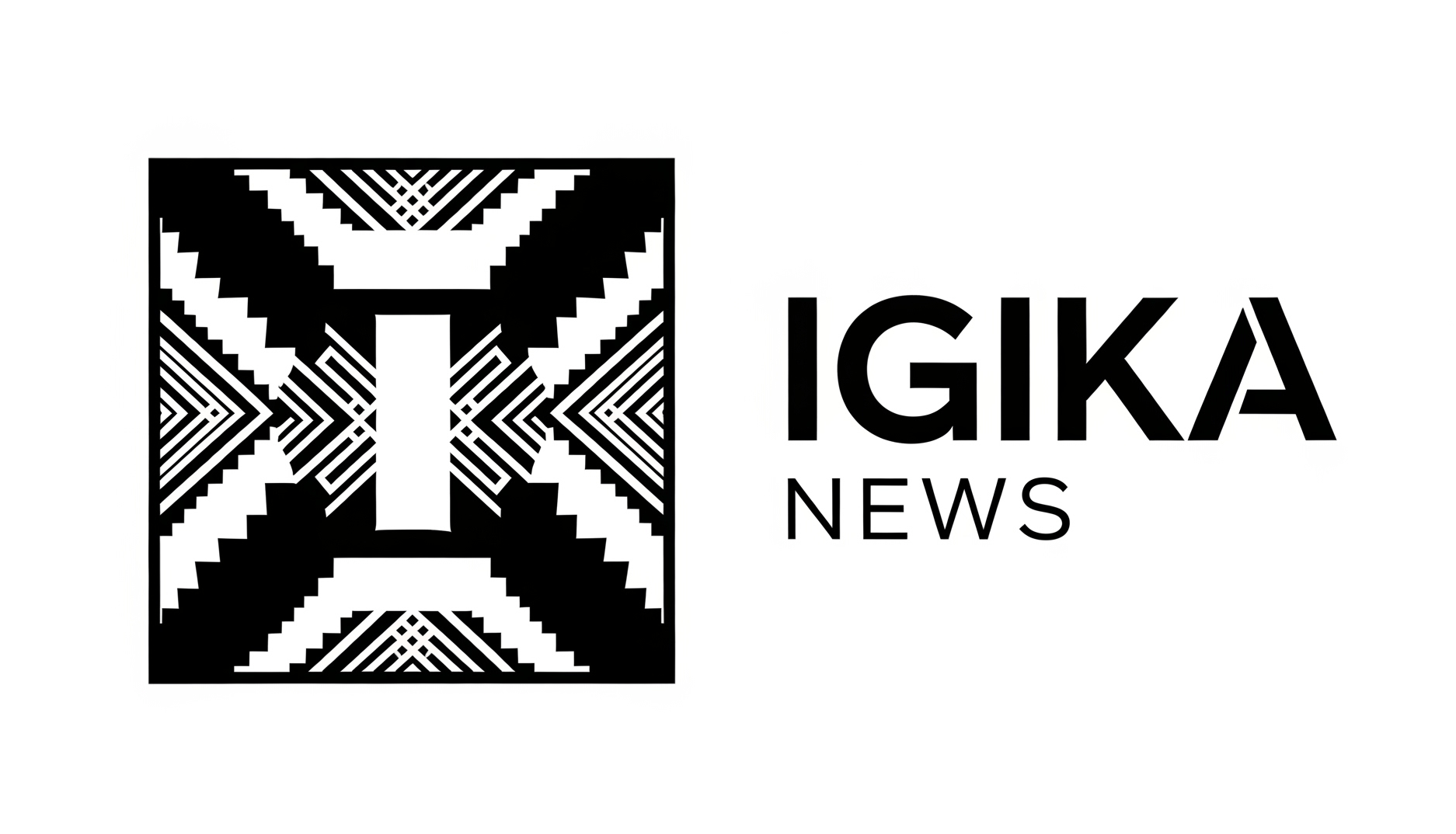The healthcare system in 2025 is a complicated, changing, and often unstable ecosystem. It’s a world still dealing with the effects of a global pandemic, the rapid changes brought about by AI and telehealth, the complicated needs of an aging population, and the constant pressure to provide better care more quickly. In this high-stakes situation, clinical knowledge alone isn’t enough to run the show anymore. The industry needs a new kind of leader who can combine clinical knowledge with business sense, a big-picture view, and perfect operational management. This is where you come in as an ambitious healthcare worker. And what is your best strategic tool for this rise? The MHA is an online master’s degree in healthcare administration.
People who work on the front lines of care have thought for too long that getting a master’s degree was an impossible choice. How could a full-time nurse, a dedicated therapist, or a mid-level manager leave their important jobs for two years to go to a traditional, on-campus program? That barrier has been broken by the digital revolution in education. An online master’s degree is no longer a “lesser-than” option; it is a smart, flexible, and powerful path for people who work.
This complete guide will look at the many benefits of getting a online master’s in healthcare administration. We will look at how these programs are carefully planned to teach the important leadership skills needed to do well in today’s healthcare C-suite. We’ll go beyond the theoretical and give you real, useful advice that you can start using right away to think and act like the leader you want to be. Prepare to change the course of your career and make a difference in the healthcare world.
Why Healthcare Administration? The Need for Visionary Leaders
Before we get into the “how” of an online MHA, let’s make sure we understand the “why.” The need for skilled medical and health services managers is not only growing; it’s skyrocketing. The U.S. Bureau of Labor Statistics (BLS) says that this job will grow by an amazing 28% from 2022 to 2032. That’s about 144,700 openings each year over the next ten years. This pace is much faster than the average for all jobs, and it makes it clear: the industry needs qualified leaders right away.
But what is causing this need?
System Complexity: Today’s healthcare system is more than just hospitals and clinics. It’s a network of hospitals, outpatient services, long-term care facilities, insurance companies, technology companies, drug companies, and public health groups that all work together. To handle this level of complexity, you need to have a deep understanding of systems thinking, which is a key part of healthcare administration.
The Financial Squeeze: Healthcare providers are always stuck between rising costs of doing business and pressure from both government and private payers to keep costs down. To keep their organizations financially stable and able to carry out their care missions, leaders need to be good at managing money, optimizing the revenue cycle, and strategically allocating resources.
The Technology Revolution: Electronic Health Records (EHRs), telehealth platforms, AI-driven diagnostics, and data analytics are no longer things of the future; they are things that happen every day. Leaders need to not only know how this technology works, but also how to use it in a way that improves patient outcomes, makes operations more efficient, and keeps data safe.
A Shift to Value-Based Care: The industry is slowly but surely moving away from a fee-for-service model (where providers are paid for the quantity of services) to a value-based care model (where payment is linked to the quality of patient outcomes). Leaders who can manage population health, coordinate care across different settings, and use data to show their worth are needed for this shift in thinking.
An MHA program is specifically designed to give you the skills you need to face these problems head-on. It is the only way to move up in the academic world from a clinical or departmental role to one where you can have an impact on the whole organization.
The Online Master’s Advantage: Changing the Way Professionals Learn in the 21st Century
There are good things about the traditional brick-and-mortar university experience, but for healthcare professionals who are already balancing a busy career and personal life, it’s often too much to handle. For many people, the online master’s format is the best choice because it offers a mix of rigor and flexibility that fits perfectly with the realities of a career in healthcare.
Unmatched Flexibility: Learn When You Want, Not When We Want
There is no doubt that this is the most well-known benefit of an online MHA. Because most of the best online programs use an asynchronous learning model, you don’t have to go to class at a certain time. There are recorded lectures, weekly deadlines for assignments, and discussion boards that are open all the time.
Picture this: You are a registered nurse who just got off of a long, hard 12-hour night shift. With a regular program, you would have to either skip class or go to class tired. With a online master’s, you can go home, rest, and then work on your schoolwork when you’re fresh and focused, whether that’s in the afternoon, late at night, or on your day off. You can keep working full-time, stay in your current job (often using what you learn right away), and have a better work-life balance because of this flexibility.
A surprising cost-effectiveness and a strong return on investment (ROI)
When thinking about getting a master’s degree, the cost is always a big deal. The cost of online programs is often much lower overall, even though the tuition may be similar to that of on-campus programs. Think about the extra costs that come with a traditional degree but not with an online degree:
- Costs of Commuting: You don’t have to pay for gas, public transportation, or parking every day.
- Moving Costs: You don’t have to move to a new city, which saves you money on moving costs, breaking leases, and the higher cost of living that often comes with living near a university.
- Opportunity Cost: You don’t lose one to two years of income and career advancement because you can keep working full-time.
Now let’s talk about the return. An MHA is a direct way to increase your earning potential. Payscale says that as of early 2025, the average salary for someone with a Master of Health Administration (MHA) degree is about $101,000 a year. For executive-level jobs like Hospital CEO or Chief Operating Officer, this can be a lot higher. When you look at the average salary for many clinical jobs, it’s easy to see how this will help you financially in the long run. Your MHA isn’t a cost; it’s an investment that can pay for itself many times over during your career.
A Modern Healthcare Curriculum
Some people think that online education is somehow “watered down.” This is not true for accredited, high-quality MHA programs. Because the faculty who design and teach the curriculum are also active leaders and consultants in the field, the curriculum is often more up-to-date and useful. They bring real-life, current problems into the virtual classroom.
A typical online MHA curriculum includes a full set of leadership tools that cover important areas like:
Healthcare Finance and Economics: Learn how to read a balance sheet, keep track of your money, and understand how the economy affects healthcare policy.
Strategic Planning and Marketing: Learn how to look at market trends, set an organization up for growth, and make strategic plans that work.
Healthcare Law and Ethics: Deal with the difficult legal and moral issues that come up in healthcare, such as patient privacy (HIPAA) and decisions about end-of-life care.
Operations and Quality Improvement: Learn how to use Lean and Six Sigma to make processes more efficient, cut down on waste, and make patients safer and healthier.
Health Informatics and Data Analytics: Learn how to use data to make smart choices, keep track of performance metrics, and guess what will happen in the future.
Leadership and Organizational Behavior: This is the most important part. You will learn about theories and real-world examples of how to be a good leader.
This tough curriculum makes sure you leave with more than just a degree; you’ll also have a portfolio of useful, in-demand skills. To learn more about what the best employers want, read our post on Key Competencies for Healthcare Leaders in the Next Decade.
The heart of your MHA journey is developing the basic skills you need to be a good leader.
An MHA is not just a degree; it’s a place where leaders can grow. The whole thing is meant to change the way you think from that of a worker to that of a strategic leader. Let’s talk about the most important leadership skills you’ll learn and how you can start using them right now.
Big-Picture Vision and Strategic Thinking
In frontline healthcare, you often have to do things right away, like treat the patient in front of you, finish your charting, and run the shift. Being a leader means being able to look past the present and see the future. It’s about knowing how your department fits into the whole company and how the whole company fits into the bigger healthcare system.
How the MHA Develops It: In strategic planning classes, you have to do SWOT analyses (Strengths, Weaknesses, Opportunities, Threats), look at case studies of hospitals that have turned around, and make multi-year strategic plans for fake organizations. This helps your brain learn to think in a planned and long-term way.
A Useful Tip You Can Use Right Now: Pick a problem that your department is having right now, like long patient wait times, low staff morale, or an inefficient workflow. Make a simple one-page SWOT analysis for it in your own time. What are the internal strengths and weaknesses that are making the problem worse? What outside factors, like new technology or a competing clinic, could affect it? This easy exercise starts to strengthen your strategic thinking skills.
Financial Knowledge and Care of Resources
One of the biggest changes from working in a clinic to working in an office is that you are now in charge of the bottom line. If your organization is bankrupt, you can’t give good care. Good leaders take care of their resources, such as money, people, and things.
How the MHA Develops It: Healthcare finance classes go into great detail about accounting, budgeting, revenue cycle management, and investment analysis, all in the context of healthcare reimbursement models. You’ll learn how to talk like a CFO and make decisions that are good for both patients and the company’s bottom line.
A Useful Tip You Can Use Right Now: Ask your boss if you can see a simplified or blacked-out version of your department’s budget. Learn about the main types of costs, such as staffing, supplies, and equipment. Then, come up with one idea that could help your unit make money or save money, even if it’s a small one. It’s not about getting it approved tomorrow; it’s about starting to think about how the day-to-day operations will affect the budget.
Managing Relationships and Communication at the Highest Level
People do the work of leadership. If a leader can’t communicate their vision in a way that makes people want to act and agree, it’s not worth anything. This includes everything from leading a productive meeting and giving a persuasive presentation to having a tough conversation with an employee who is having trouble or negotiating with a group of doctors.
How the MHA Develops It: Online programs are surprisingly good at helping people learn how to talk to each other. You have to write about complicated ideas all the time on discussion boards, work on group projects with people from all over the country who have different backgrounds, and give video presentations a lot. This helps you get better at being clear, brief, and convincing in different ways.
Tip You Can Use Right Now: Pay attention when someone is talking. When you have your next team meeting or one-on-one conversation, try not to just wait for your turn to talk. Instead, really listen to what the other person is saying. To make sure you understand, say their point back to them in your own words, like, “So, if I’m hearing you right, your main concern is…” This easy trick builds trust and makes people feel important, which is a key part of being a good leader.
Getting through the mess: rules, regulations, and morals
One of the most regulated industries in the world is healthcare. Leaders need to know the rules and laws that cover everything from billing to patient rights. Also, they are often the last word on difficult moral questions.
How the MHA Develops It: Case studies are used in dedicated courses on healthcare law, policy, and ethics to put you in the shoes of the decision-maker. You’ll talk about the moral issues that come up when allocating resources, look at how new laws like the 21st Century Cures Act affect things, and learn how to create a culture of compliance in a business.
A Useful Tip You Can Use Right Now: Become a member of a professional group like the American College of Healthcare Executives (ACHE) or the Healthcare Financial Management Association (HFMA). Look at their news updates and publications. If you read about the policy changes and problems that are affecting your industry for just 15 minutes a week, you will have a much better understanding of the things that are affecting your workplace.
A Strategic Checklist for Picking the Right Online MHA Program
Not all online MHA programs are the same. Choosing the right thing is very important if you want to get the most out of your money. As a top blog writer in this field, I suggest that you carefully look at programs based on the following:
Accreditation Is Non-Negotiable: Look for the Gold Standard
This is the most important thing. The Commission on Accreditation of Healthcare Management Education (CAHME) is the best organization for accrediting MHA programs. CAHME accreditation is a strict peer-review process that shows that the program meets the highest standards of educational quality in healthcare administration. Employers will respect and recognize your degree if you graduate from a CAHME-accredited program. This is also often a requirement for top-tier fellowships and executive positions. Don’t give in on this.
Faculty Knowledge and Involvement in the Industry
Who is your teacher? Check out the faculty bios. Are they tenured professors who haven’t worked in the field in 20 years, or are they a mix of respected researchers and current professionals—hospital CEOs, health system VPs, and healthcare consultants—who bring useful, up-to-date experience to the virtual classroom? The best programs have teachers who are actively changing the field they are teaching you about.
A strong career services department and a large alumni network
You shouldn’t stop being connected to the university when you get your degree. A strong alumni network is a great resource for networking, getting advice, and finding jobs throughout your career. Look into the school’s career services. Do they have services just for students who study online? Do they work with big health systems? Do they look over resumes, do mock interviews, and give you access to a private job board? The help you get while looking for a job can be just as important as the education itself.
Technology and Help for Students
The online learning platform should be easy to use, dependable, and simple to find your way around. Is there a demo or a tour of the program’s virtual classroom? Also, what kind of help is there? Is tech support available 24/7? Do you have an academic advisor who is always available and helpful? The quality of the student support system can make or break your experience learning online.
Check out our in-depth guide, “How to Compare and Choose the Best Online MHA Program for You,” for more information on how to choose the right program for you.
Your Journey Starts Now: Last Thoughts and Your First Step
Getting a online master’s in healthcare administration is more than just going to school; it’s a way to show that you want to do something. It’s a promise to go beyond your current job and become a leader who can change the future of healthcare, make a big difference in patients’ lives, and build a career that is both financially rewarding and deeply meaningful.
The road is hard, but the rewards are clear. An online format is easy to use because it is flexible. The curriculum teaches the exact skills that employers want. And working on your real “leadership skills” will get you ready for more than just your next job; it will get you ready for a lifetime of making a difference.
Your passion, experience, and advanced training to turn that passion into action are what the healthcare system of the future needs in leaders. You don’t have to worry about whether or not you have time anymore; you just need to be ready to answer the call.
The first day of class isn’t when you start your journey to leadership. It starts now. It correspondingly, it begins with the choice to put money into yourself and your future. It all starts with that first small step.
The First Step: Don’t just think about it. Get started on your research now. Find three CAHME-accredited online master’s programs that you would like to learn more about. Visit their websites. Ask for information. Go to an online open house. Make the abstract real. You can change your career and become a leader in healthcare administration. With just one click, the journey begins.




